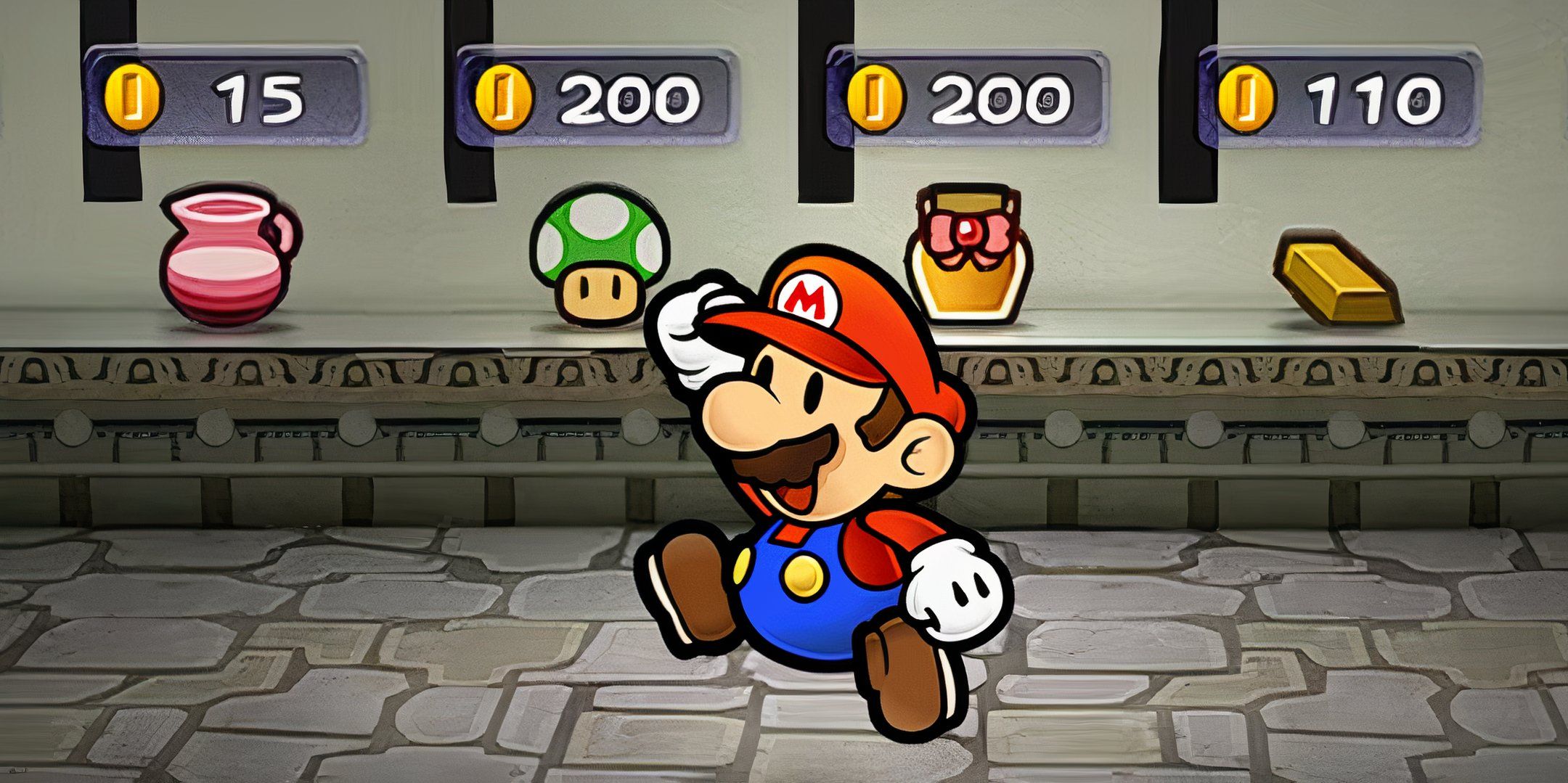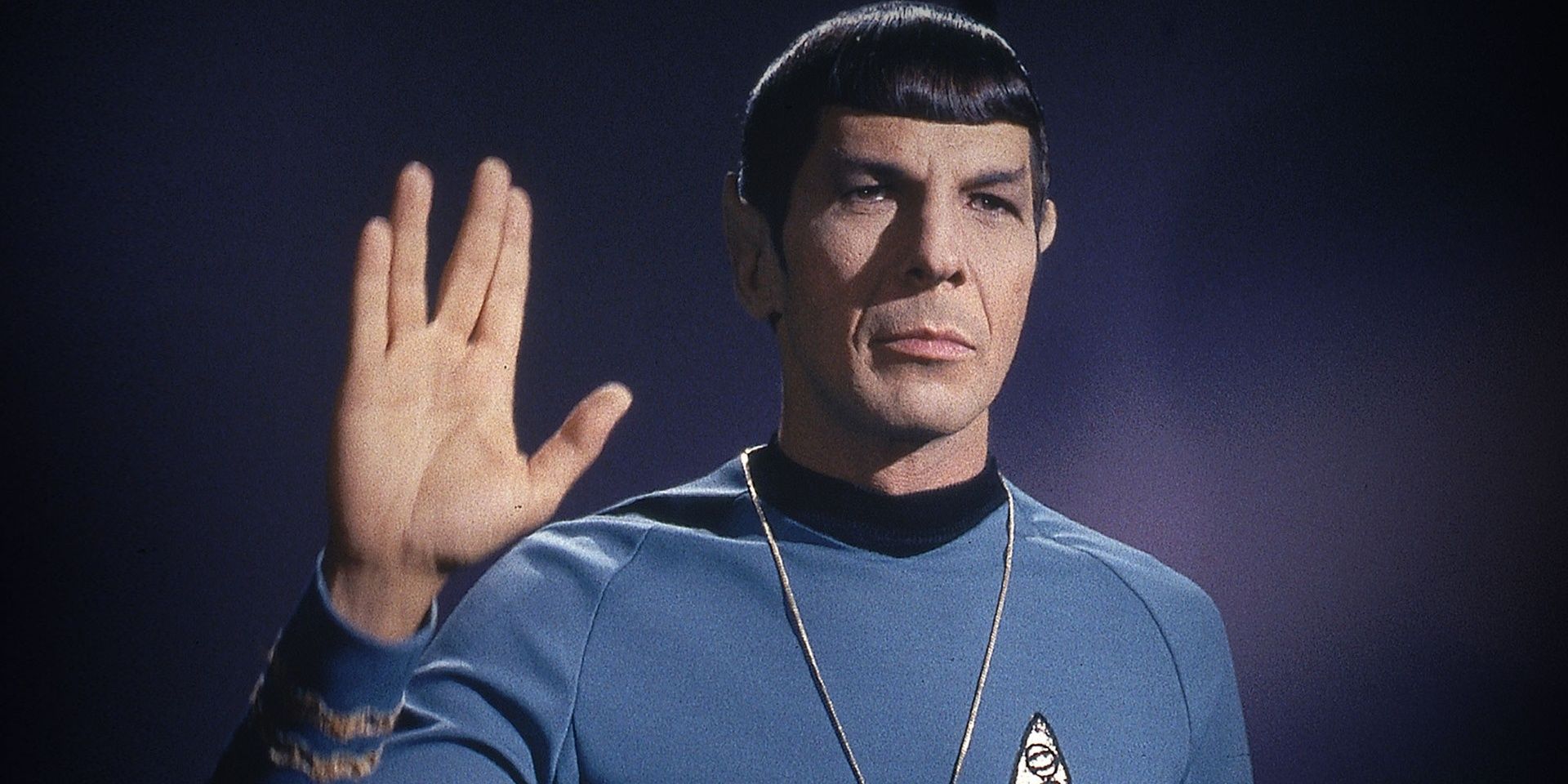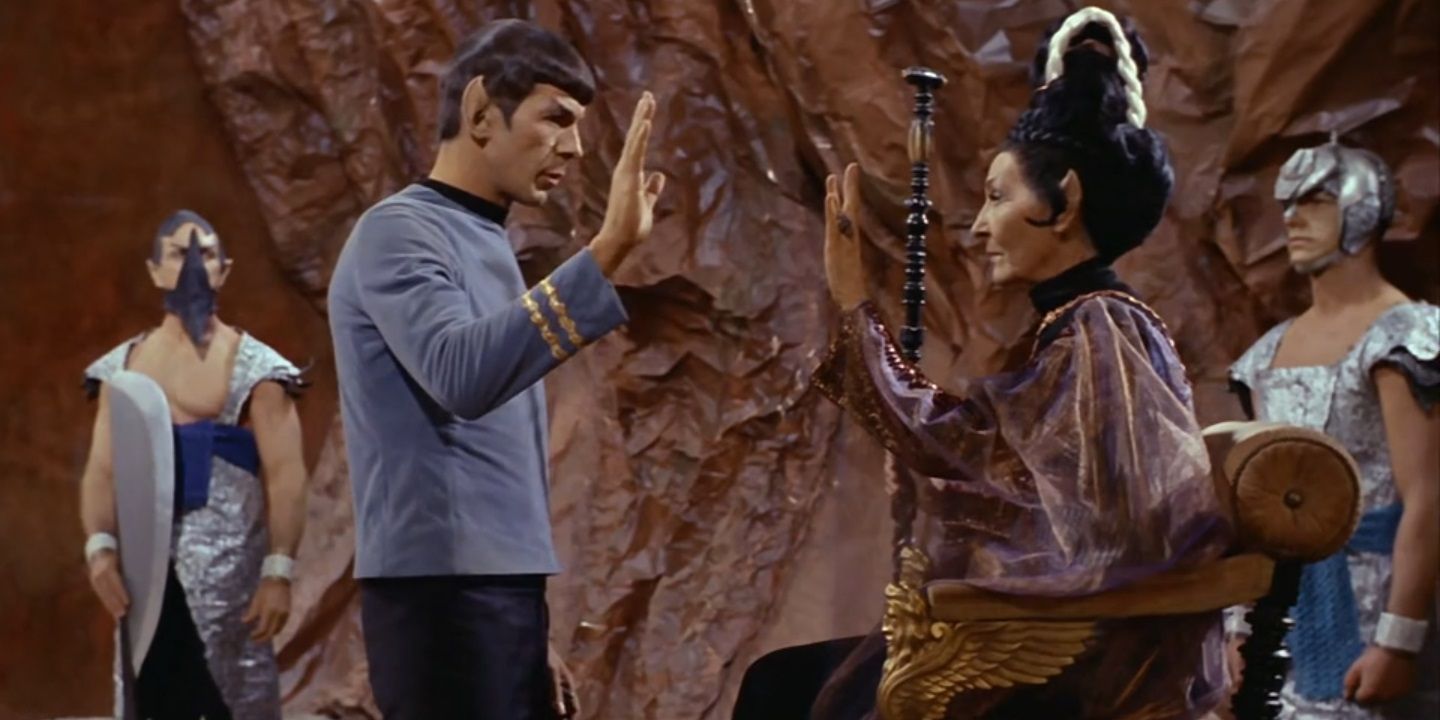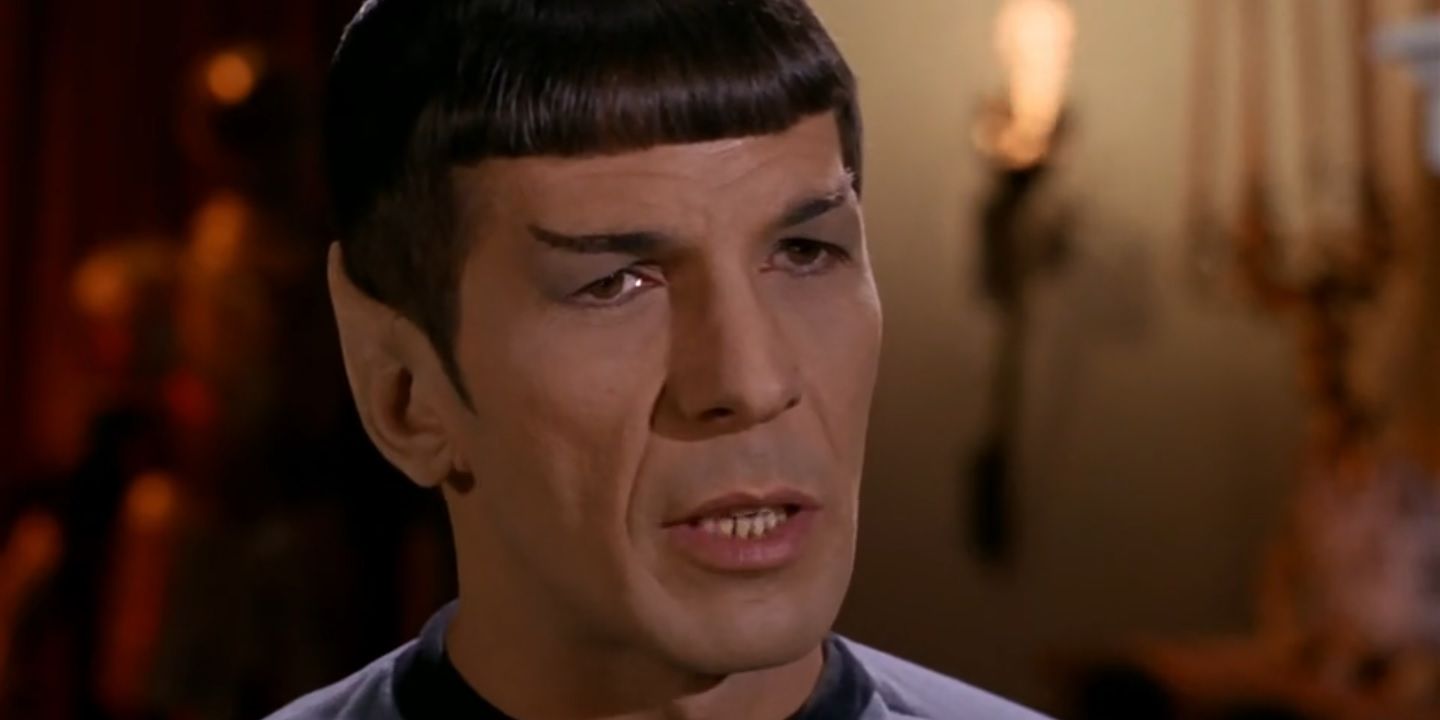Highlights
- Leonard Nimoy’s Spock was almost cut from Star Trek due to feedback on the failed pilot episode, but creator Gene Roddenberry chose to keep him.
- Spock’s mixed heritage and logical Vulcan mindset make him one of the franchise’s most interesting characters, leading to great story ideas and dialogue.
- Spock’s dialogue and interactions in various episodes reveal his stoicism, friendship with Kirk, and his growth beyond purely Vulcan stoicism.
Leonard Nimoy’s Spock is one of science fiction’s most famous aliens, but the character came very close to being cut from the show in its earliest days. Feedback on Star Trek‘s failed pilot episode gave creator Gene Roddenberry an ultimatum: get rid of the Satanic Spock, or ditch the Enterprise‘s female second-in-command. Roddenberry chose to stick with Spock, and, with hindsight, it’s difficult to argue that he made the wrong decision.
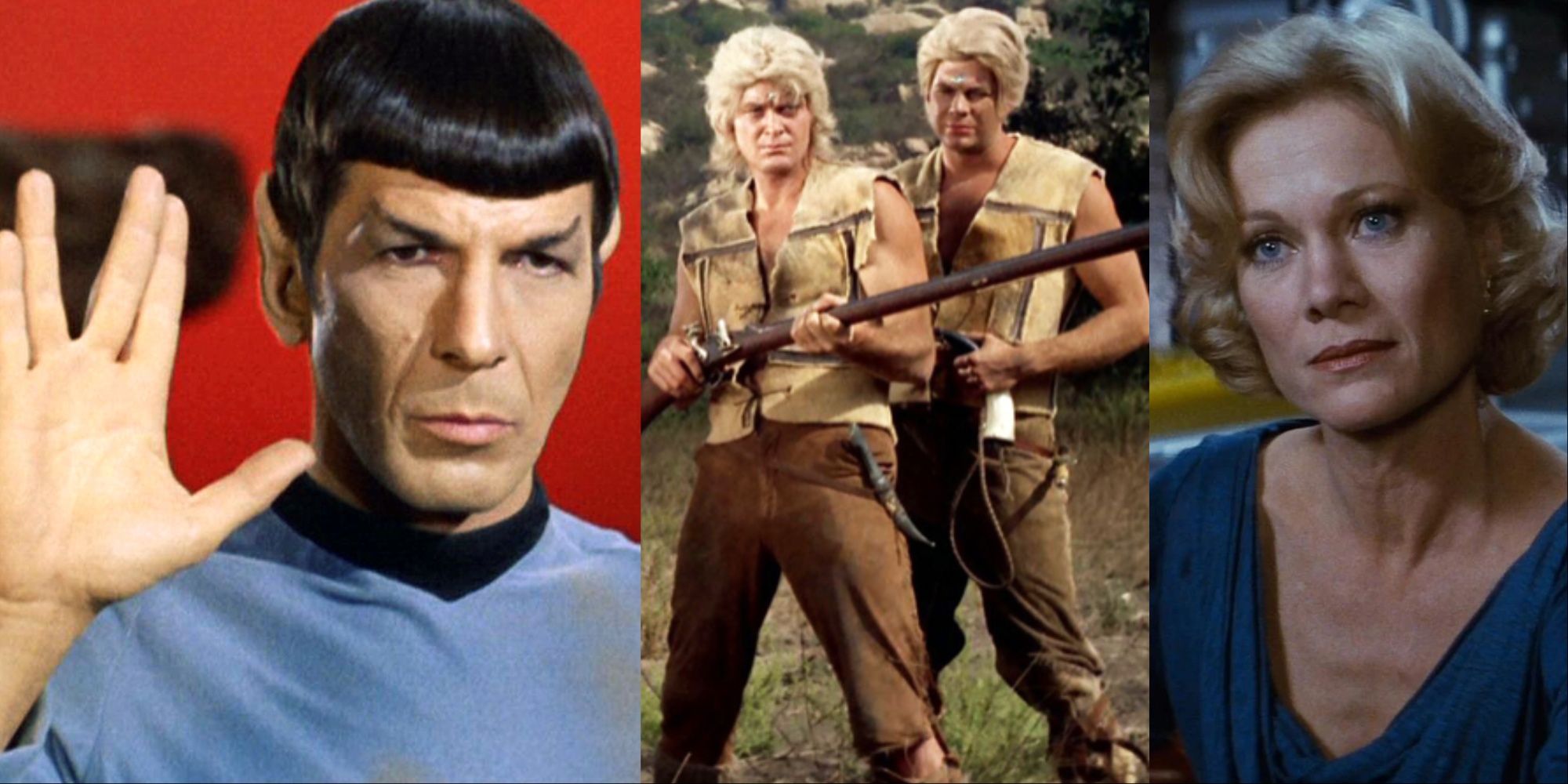
Star Trek: James T. Kirk’s Best Friends, Ranked
James T. Kirk is a rather charismatic Star Trek captain, so it’s no surprise he has some great friends.
Spock’s mixed heritage makes him one of the franchise’s most interesting characters. His affection for his friends is tempered by his logical Vulcan mindset, and this conflict has been mined for both great story ideas and great dialogue. Not every Spock-focused episode is a classic, but even the worst have some memorable lines.
“Live long, T’Pau, and prosper.”
“Amok Time” (The Original Series, Season 2, Episode 1)
“Amok Time” gave viewers of The Original Series their first real glimpse of the planet Vulcan. Spock returns home in order to confront his bride, T’Pring, although complications arise when T’Pring announces that she is more interested in another Vulcan, Stonn. Plot contrivances lead to Spock and Kirk fighting to the death with traditional Vulcan weapons, resulting in Kirk’s apparent death.
Spock’s dialogue with T’Pau, a Vulcan elder, not only demonstrates a previously unexplored facet of Vulcan society but also indicates Spock’s stoicism, even in the face of Kirk’s death. The line has since become a meme in popular culture, alongside the apocryphal “Beam me up, Scotty”.
“I object to intellect without discipline. I object to power without constructive purpose.”
“The Squire of Gothos” (The Original Series, Season 1, Episode 17)
“The Squire of Gothos” prefigures concepts like the Q Continuum that would play a major role in The Next Generation. Kirk and Spock encounter Trelane, a powerful entity who toys with the Enterprise crew. Despite Trelane’s vast powers, Spock is unimpressed. The Vulcan points out that Trelane’s powers are a waste if not put to good use.
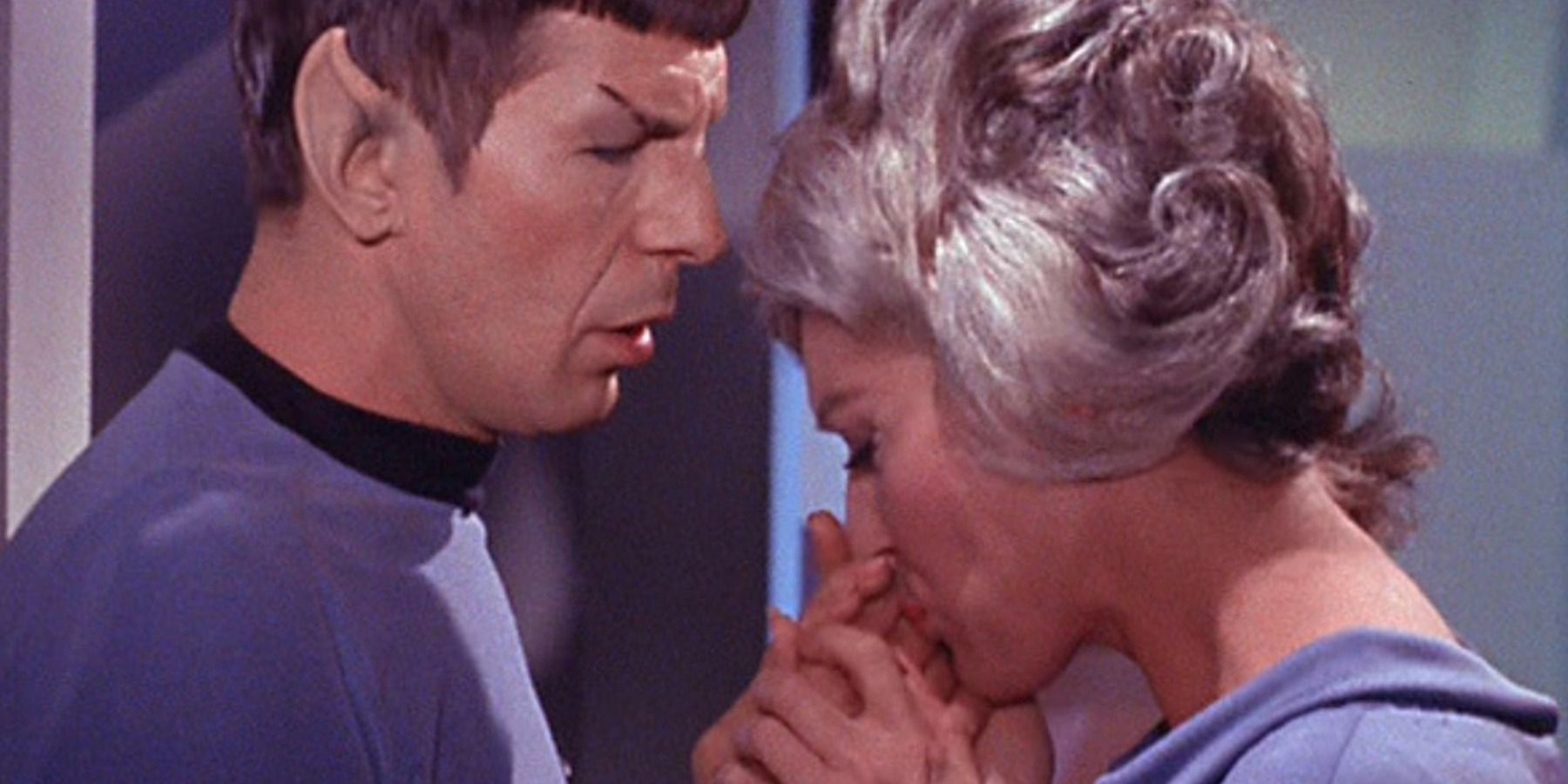
Star Trek: Christine Chapel and Spock’s Romance, Explained
Chapel and Spock’s Star Trek love story is a nuanced exploration of unrequited feelings and sacrifices in pursuit of dreams.
Spock’s observation foreshadows a twist worthy of The Twilight Zone. The episode’s conclusion reveals that the godlike Trelane is only a child, hence his mischievous behavior. “The Squire of Gothos” may be a slog for some fans to get through, but Spock’s objections to Trelane’s misused power serve the dual purpose of revealing something about Spock’s character while hinting at Trelane’s true nature.
“Captain, there is definite pleasure associated with the hearing of your voice.”
“Spock’s Brain” (The Original Series, Season 3, Episode 1)
“Spock’s Brain” is one of the worst-regarded episodes of The Original Series and marks a poor start to the show’s final season. Spock is kidnapped by alien women who intend to use his brain to power their air-conditioning unit. Fans remain divided on whether the episode is a gloriously campy slice of fun or the absolute nadir of Star Trek storytelling, but Spock’s friendship with Kirk in the episode is undeniable.
Kirk must locate Spock’s brain and put it back in his robotized body within a limited time frame. It’s one of science fiction’s silliest race-against-time plots, but the usually unemotional Spock’s relief at being reunited with his old friend makes for a genuinely touching moment in an otherwise schlocky episode.
“Computers make excellent and efficient servants, but I have no wish to serve under them.”
“The Ultimate Computer” (The Original Series, Season 2, Episode 24)
Spock is often remembered in popular culture as a relentlessly logical character, a kind of pointy-eared computer. However, the technological morality tale “The Ultimate Computer” demonstrates Spock’s disdain for such technology when used incorrectly. Starfleet plans to replace the captains of its starships with advanced computers, and one is installed aboard the Enterprise for testing – with disastrous results.
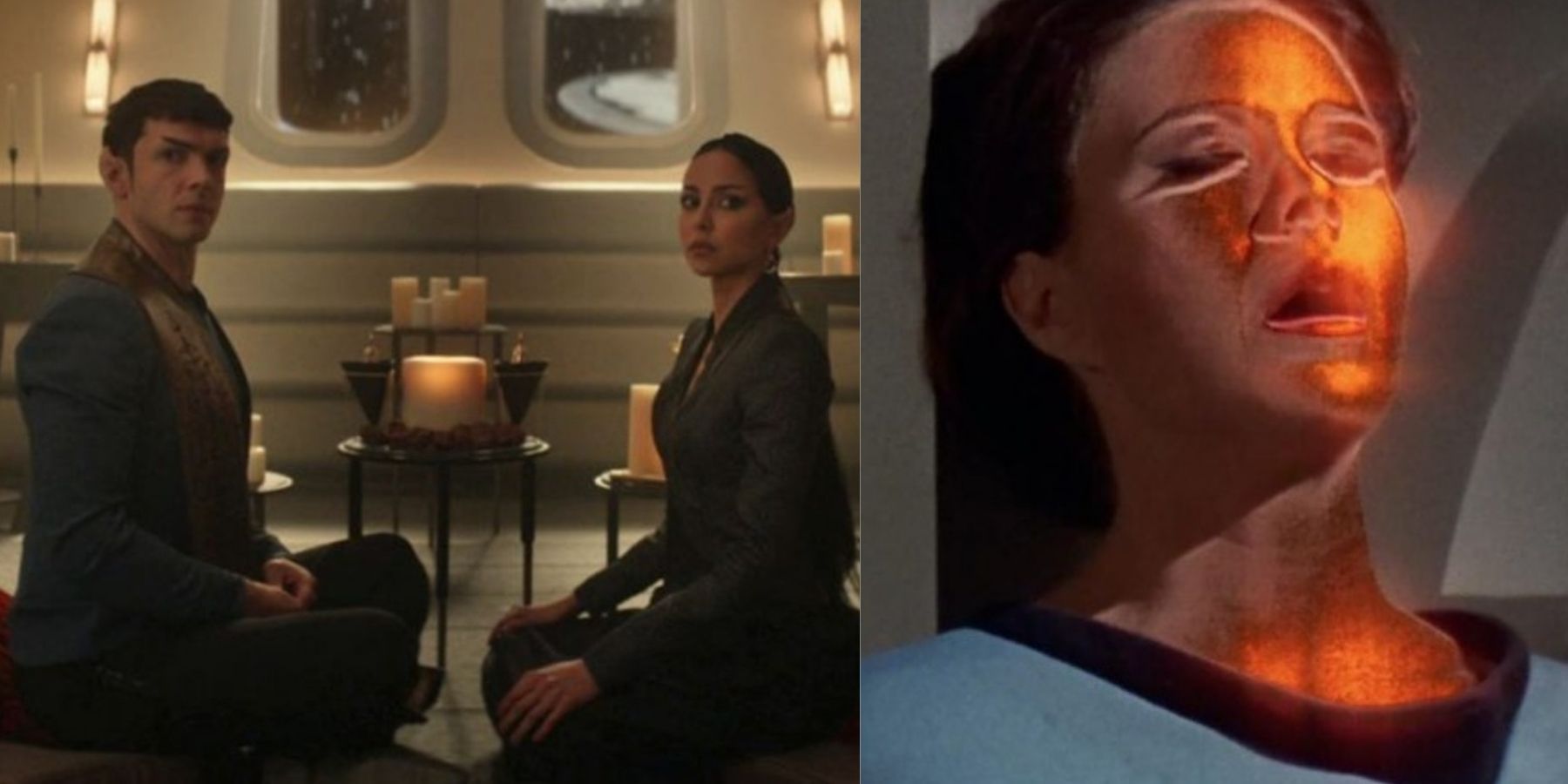
Star Trek: Best Body Swap Episodes
The Star Trek franchise has incorporated several “body swap” episodes throughout its history. These were some of the best.
Spock admits that, while computers are useful, they cannot inspire a crew in the same way that a charismatic commanding officer can, no matter how advanced their circuits. It’s a point that remains relevant today with the recent artificial intelligence boom, forcing viewers to wonder just how large a part technology should play in their day-to-day lives.

